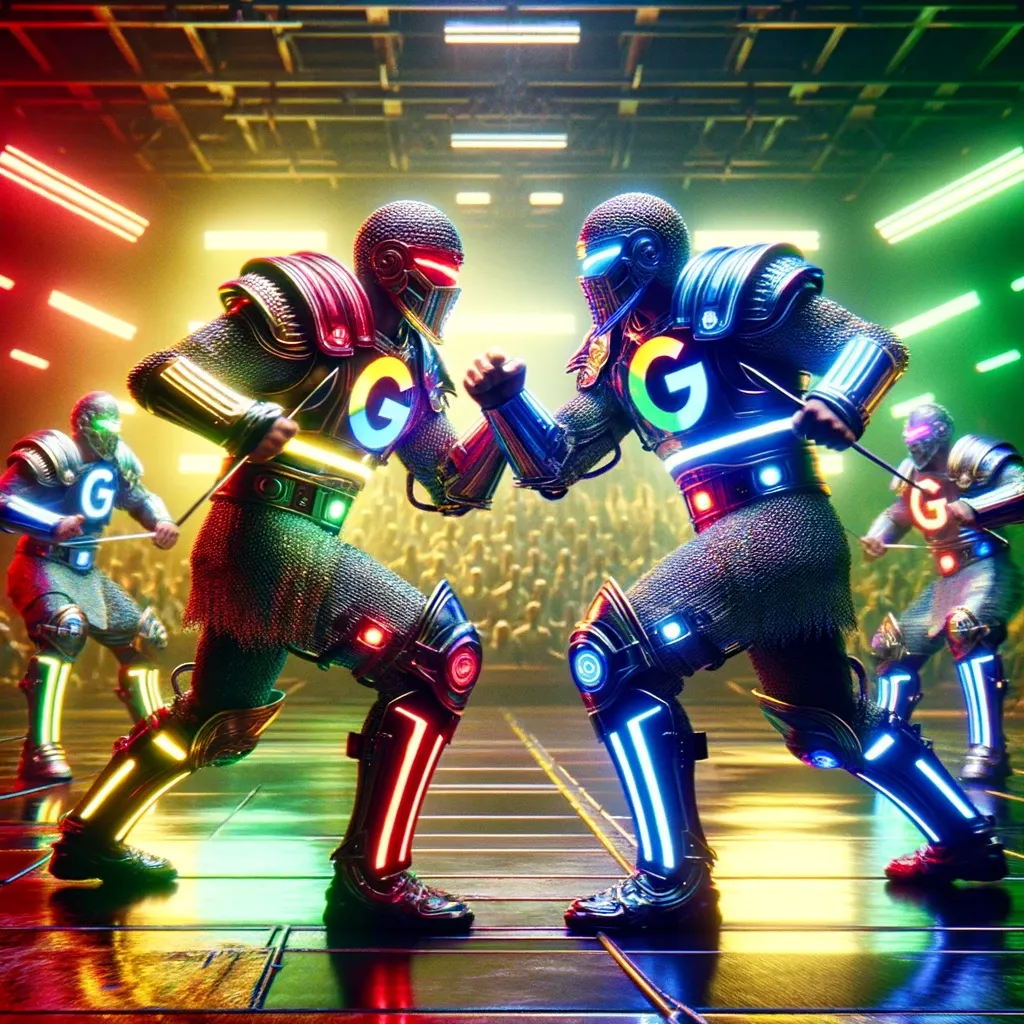Google's Self-Disruption, How Many Fake Reviews, AI 'Abstraction Layer'

Google's Self-Disruption
In 2009, 15 years ago, then Google employee Marissa Mayer described "the perfect search engine." She said, "It would be one that could understand speech, questions, phrases, what entities you’re talking about, concepts. It would be able to search all of the world’s information, [find] different ideas and concepts, and bring them back to you in a presentation that was really informative and coherent." Though still imperfect, that sounds like today's AI chatbots. Virtual assistants like Siri were candidates but failed, although they're being remade by AI. Bowing to the inevitable, Google is now reportedly planning for a time when its search engine is no longer the front door to the internet. In a recent Wired interview, CEO Sundar Pichai suggested, "The company ... doesn’t anticipate a 'lightswitch moment' when [SGE] fully replaces Google Search ... But Google plans to push 'the boundaries of what’s possible.'" Propelled by competition, Google is pushing AI across the board: Ads, Assistant, Workspace, SGE, Bard/Gemini (+ Advanced), YouTube and AI in Maps. While Gemini is catching up to ChatGPT – and works better in some areas – it's still not ready for prime time, as they used to say. But the day is coming when large numbers of users will turn first to other tools before Google SERPs, which may become a secondary or fallback resource. That's already happening for me.

Our take:
- Marissa Mayer's vision of the "perfect search engine" was 15 years ago, indicating things often take considerably longer than expected.
- We've talked a lot on the Near Memo about whether Google is willing to "disrupt itself" (i.e., sacrifice ad revenue). The Wired article suggests they're consciously trying to manage the transition.
- Gemini Advanced, one vision of the future of search, is a paid product. However, it would take ~729M users paying $20 per month to equal Google's 2023 search ad revenues.
Google: We Axed 170M Reviews
Google Business Profiles and LSAs are full of fake reviews. The question is how many? In 2021, The Transparency Company and Uberall sought to answer that question (also for Yelp, Tripadvisor and Facebook). The study estimated that Google had the most suspicious reviews overall (10.7%). However, there were categories with more, for example: moving companies (22.3%), plumbers (21.4%) and locksmiths (20.3%). Google has sought to combat the perception that fraud is rampant in its local results. Each year it publishes a summary of actions taken to mitigate fake reviews and profiles. This year Google said, "We blocked or removed over 170 million policy-violating reviews from [2023] — over 45% more than in 2022. More than 12 million fake business profiles were removed or blocked too." Google also says that it "received around 20 million contributions" per day. That would be roughly 7.3 billion annually, including but not limited to reviews (e.g., hours changes, images). While Google doesn't specifically break out the number of reviews received, we can assume that 170 million axed is a fraction of the total. The company also points to some of the machine learning signals it uses to detect fake reviews: "if a reviewer leaves the same review on multiple businesses or if a business receives a sudden spike in 1 or 5-star reviews." Good progress but still not enough.

Our take:
- Google's fake review/profile enforcement in organic results appears to be entirely separate from LSAs, where the problem is growing.
- Based on recent but unpublished data I've seen, the percentage of fake reviews on Google has not meaningfully decreased and may have grown.
- While Google's efforts to fight review/profile fraud are positive, more needs to be done, given the real-world harm caused by fake reviews.
Coming AI 'Abstraction Layer'
As SERP features like Rich Snippets, Knowledge Panels and Local Packs evolved to provide more and more information, "zero-click" search grew. Many SEOs and other industry observers began to discuss the apparent irrelevance of websites. That turned out not to be true entirely, but SGE has renewed the debate about traffic erosion. There's another wrinkle. A new iPhone app, Arc Search uses AI to construct a customized page of results, which provides enough information so that many users won't need to visit underlying websites (I found it frustrating). In response, Engagdet asks, "Who makes money when AI reads the internet for us?" While Arc Search itself is unlikely to succeed at scale, what it points to is real: widespread use of AI content summaries – an "abstraction layer for the internet." I'm already doing this. When I encounter a lengthy article, click-bait listicle or a site full of ads, I now ask Microsoft Copilot to summarize the URL About 70% of the time I get what I need and don't read the article itself. I recognize this behavior is harmful to publishers but it avoids the things that have become so annoying about much of the web's content: bloated articles that bury information to force scrolling past ads, cynical and poorly written listicles, auto-play video units, and so on.

Our take:
- We don't know how widespread AI "summarizing" will become, but it will happen more often. Assuming so, how should publishers respond?
- Video is one response; another is creating unique content with a strong POV/voice. Building a strong brand is also important. Nothing new here.
- Top of funnel content and "generic" content are likely to suffer – also pages with too many ads. Lots of questions arise, as AI both produces content and increasingly summarizes it.
Recent Analysis
- Near Memo, episode 145: Will AI Improve SMB Websites? G-Maps Getting Gemini, Bright Local Brand Survey Takeaways.
- Google Maps AI on iOS: Early Impressions, by Mike Blumenthal.
- Google LSA Brand Ads = Enshittification, by Mike Blumenthal.
Short Takes
- Google may be getting rid of the SGE side carousel.
- Google: EEAT not a ranking factor, doesn't influence them.
- TikTok prompting users to add search shortcut to homescreens.
- If your site was "hit" by Google's HCU it will take months to recover.
- The role that NLP and "entities" play in Google search results.
- Gemini Advanced appears to be driving Google One subscriptions.
- Google clarifies that Extended (blocking) applies to Gemini, not search
- Microsoft Azure starting to catch up to AWS because of OpenAI.
- Would be Twitter replacement Bluesky opens to all, with 4.5M users.
- Majority of new Vision Pro apps paid downloads, not ad-supported.
- Performance reviews increasingly (at least partly) written by AI.
- USPTO: Only humans, not AI, can be awarded patents.
- Interview with DOJ's Kanter on Google antitrust and EU's DMA.
Listen to our latest podcast.

How can we make this better? Email us with suggestions and recommendations.

